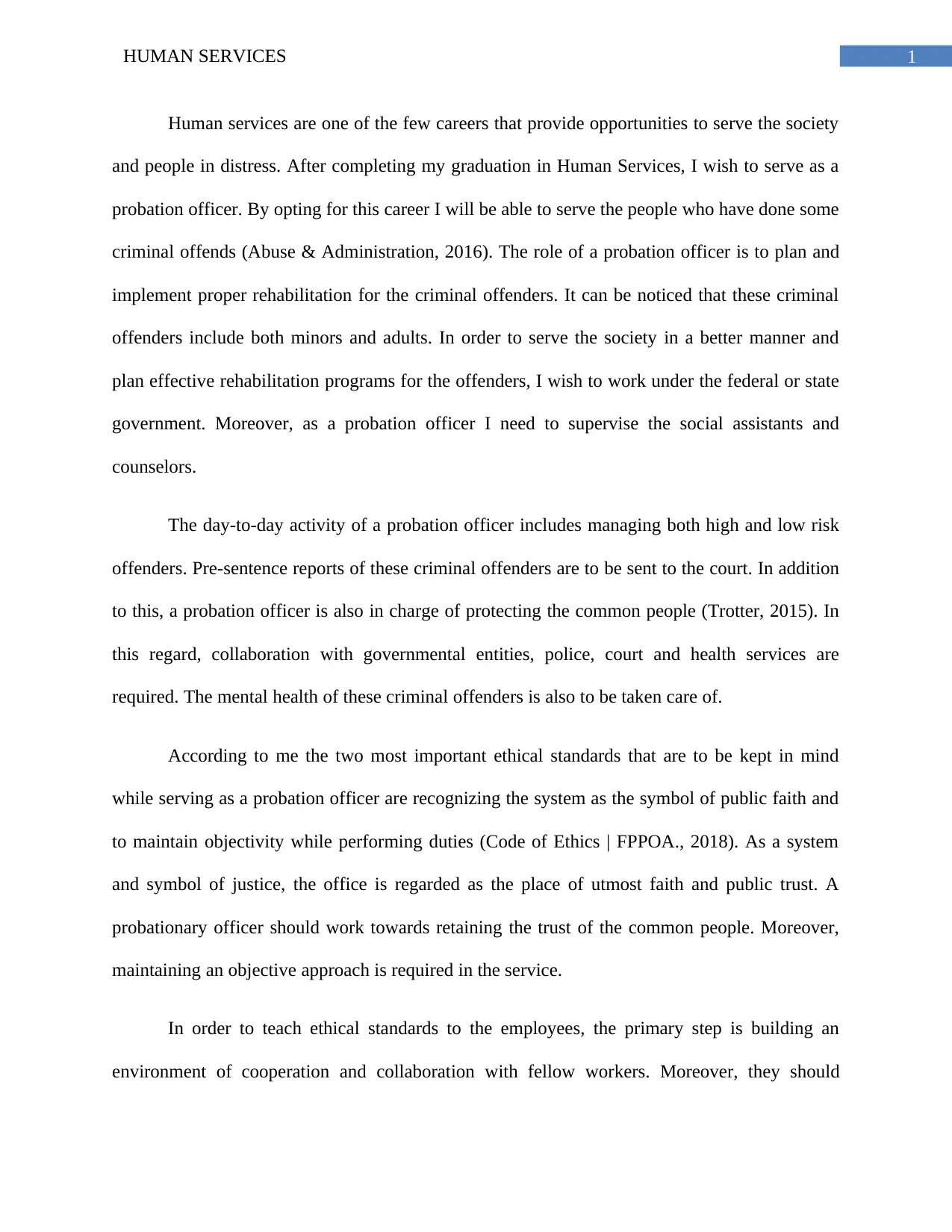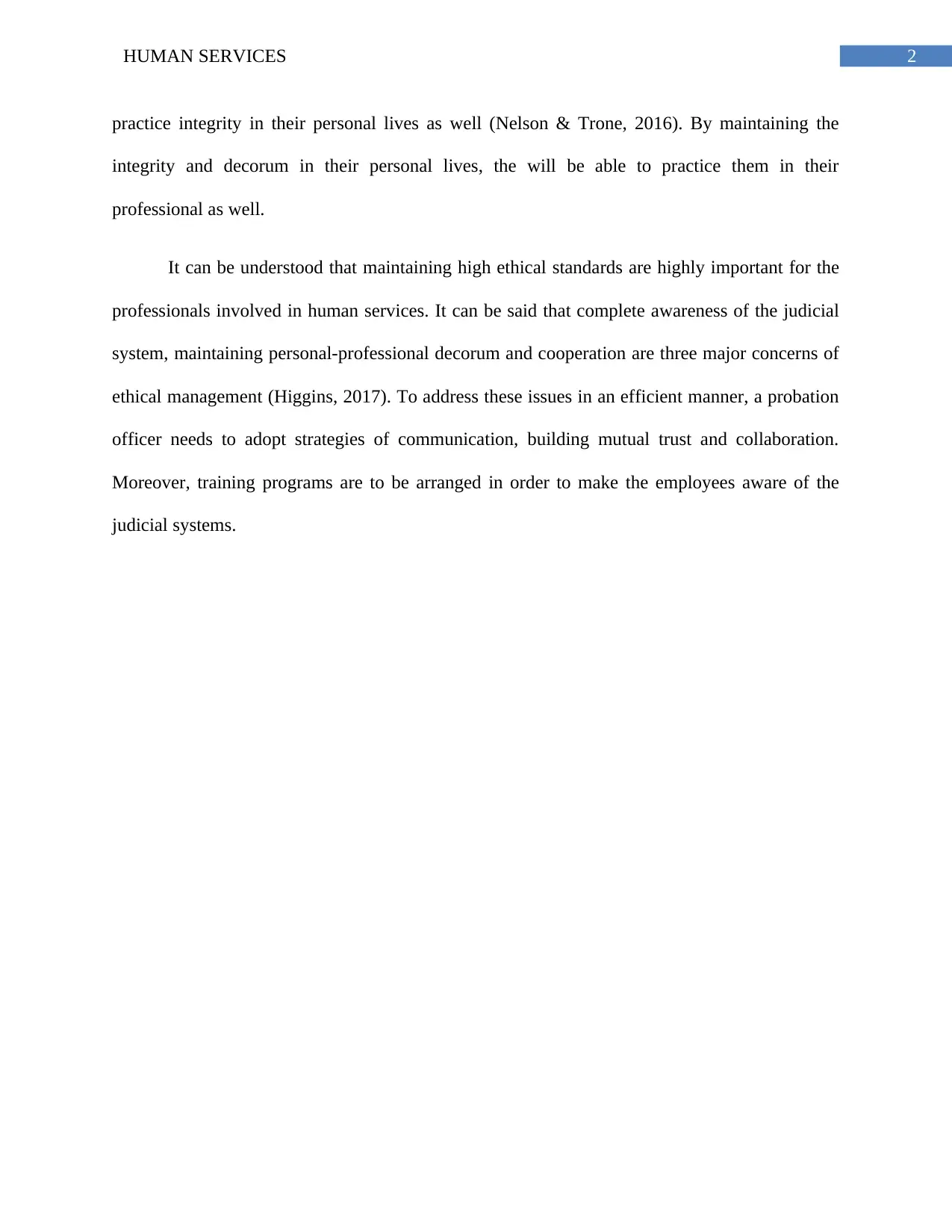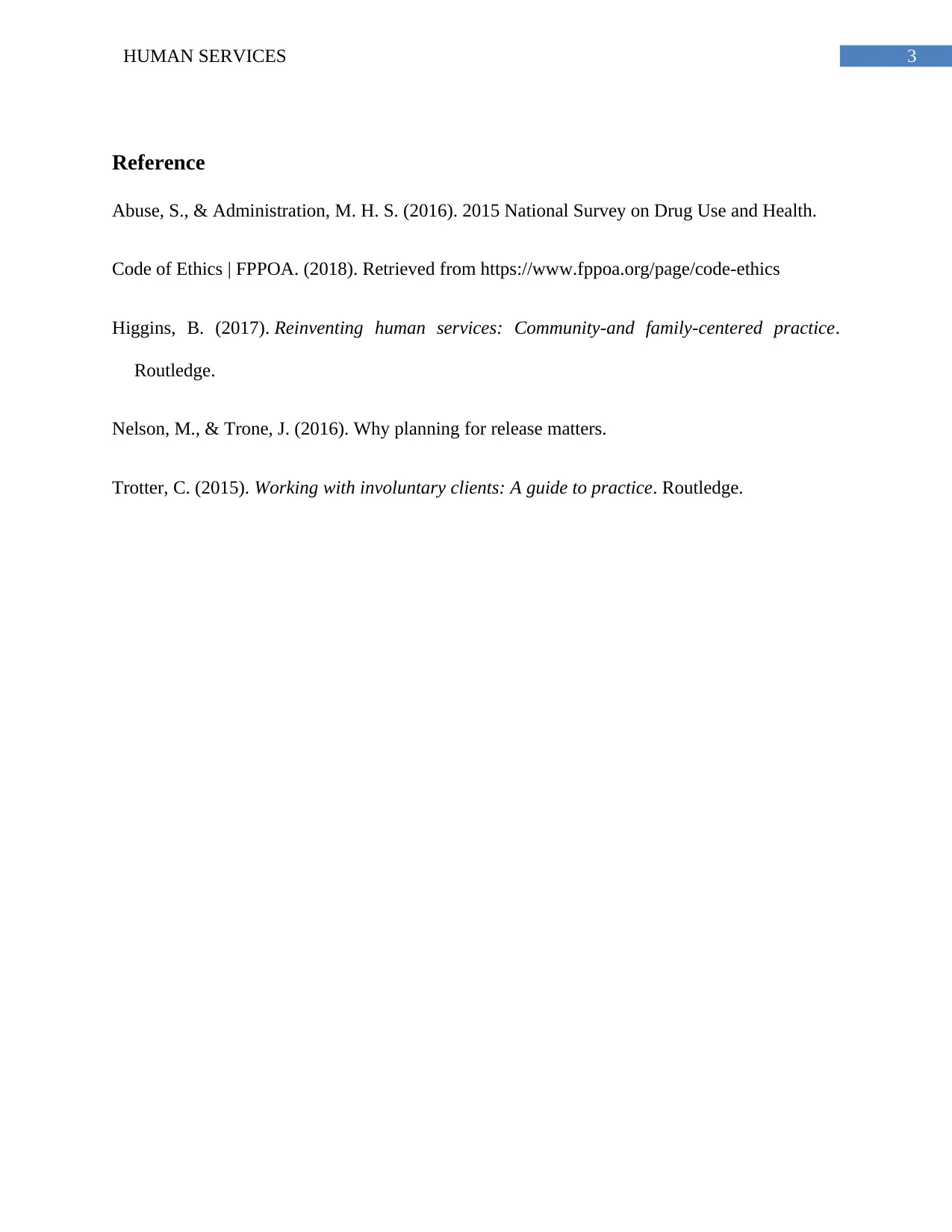Ethical Standards and Management Practices in Human Services Role
VerifiedAdded on 2023/05/31
|4
|608
|195
Essay
AI Summary
This essay discusses the role of a probation officer within the human services field, emphasizing the importance of ethical standards and effective management practices. It outlines the responsibilities of a probation officer, including rehabilitation planning, supervision of social assistants, and collaboration with governmental entities. The essay identifies two key ethical standards: upholding public trust and maintaining objectivity. It further explores methods for teaching ethical standards to employees, such as fostering cooperation and promoting personal integrity. The paper also addresses concerns related to ethical management, such as awareness of the judicial system, maintaining professional decorum, and promoting collaboration, suggesting strategies like communication, trust-building, and training programs. The document is available on Desklib, a platform offering a variety of study resources for students.
1 out of 4





![[object Object]](/_next/static/media/star-bottom.7253800d.svg)